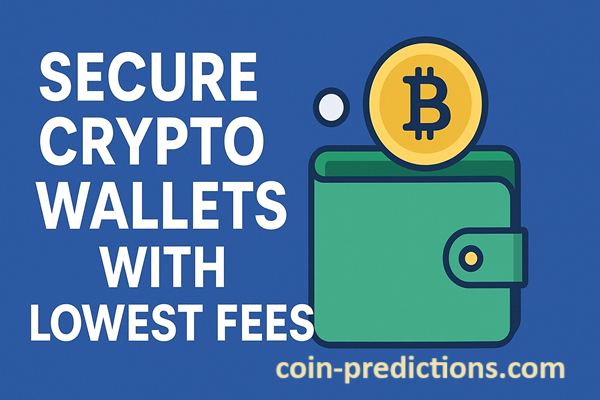Regional Wallet Regulations to Watch in 2026
Regional Wallet Regulations to Watch in 2026 – Crypto Compliance Guide – Explore the key crypto wallet regulations in 2026 across the US, EU, UK, Asia, Africa, and Latin America. Stay compliant and secure.
Regional Wallet Regulations to Watch in 2026
As cryptocurrency adoption continues to grow globally, regulatory frameworks for crypto wallets are becoming increasingly important. In 2026, governments and financial authorities across different regions are tightening oversight to protect users, ensure tax compliance, and prevent money laundering.
For crypto users, investors, and businesses, understanding regional wallet regulations is crucial to stay compliant and secure.
Why Regional Crypto Wallet Regulations Matter
Crypto wallet regulations impact:
- Legal compliance – Avoid fines and legal issues.
- User protection – Ensures wallets follow security and transparency standards.
- Tax reporting – Facilitates proper declaration of gains and losses.
- Cross-border transactions – Determines how crypto can be sent and received internationally.
- Exchange integrations – Wallets may be restricted based on regional regulations.
A regulated wallet environment builds trust and stability, attracting both retail and institutional investors.
Key Regions and Their Wallet Regulations in 2026
1. United States
- Regulators: SEC, FinCEN
- Key Rules:
- Custodial wallets must register with FinCEN as MSBs (Money Services Businesses).
- KYC/AML compliance is mandatory.
- Reporting of crypto transactions for tax purposes to the IRS.
Impact: Only FCA-compliant and registered wallets are fully recognized; non-compliance may lead to fines or service bans.
2. European Union
- Regulators: European Central Bank (ECB), EU AMLD6
- Key Rules:
- Wallet providers must comply with Anti-Money Laundering Directives.
- KYC verification for all custodial wallets.
- Licensing requirements for wallet operators across member states.
Impact: Wallets like Bitpanda, Revolut, and Ledger Enterprise comply, ensuring legal operations across Europe.
3. United Kingdom
- Regulators: FCA (Financial Conduct Authority)
- Key Rules:
- Custodial wallets must be FCA-registered.
- Strict AML and transaction monitoring requirements.
- Consumer protection rules mandate clear fee disclosures.
Impact: Non-FCA wallets cannot legally provide custodial services to UK users.
4. Asia-Pacific
- Key Countries & Regulators:
- Japan: FSA – all wallets must be registered and comply with reporting standards.
- Singapore: MAS – KYC/AML compliance mandatory.
- India: RBI & SEBI – wallets must follow crypto taxation and regulatory guidelines.
Impact: Wallets operating across Asia must adhere to national regulations or risk being blocked.
5. Africa
- Key Countries: Nigeria (CBN), South Africa (SARB), Kenya (CBK)
- Key Rules:
- Nigeria’s CBN restricts banking access for crypto exchanges but wallets are allowed for P2P transactions.
- South Africa enforces KYC and AML guidelines for all crypto platforms.
Impact: Wallets offering P2P services (like Paxful) dominate African markets due to limited banking access.
6. Latin America
- Key Countries: Brazil, Argentina, Mexico
- Key Rules:
- Wallets must comply with anti-money laundering laws.
- Regulatory clarity is emerging; some countries, like Brazil, are implementing official crypto guidelines.
- Tax reporting obligations are increasing.
Impact: Wallets that support local fiat integration and regulatory compliance are gaining adoption.
Here’s a Global Comparison Chart of Wallet Regulations by Region for 2026, showing compliance requirements, KYC, AML, and custody rules:
| Region | Regulatory Authority | Custodial Wallet Rules | Non-Custodial Wallet Rules | KYC Required | AML Required | Notes |
|---|---|---|---|---|---|---|
| United States | SEC, FinCEN | Must register as MSB; full compliance | Fewer restrictions, but still reportable | Yes | Yes | IRS reporting mandatory; high regulatory scrutiny |
| European Union | European Central Bank, AMLD6 | Licensing required; regulated operators | Fewer restrictions, but must follow AML directives | Yes | Yes | Member-state harmonization underway; cross-border rules |
| United Kingdom | FCA | FCA-registered custodial wallets only | Non-custodial allowed with minimal oversight | Yes | Yes | Consumer protection and transaction monitoring enforced |
| Japan | FSA | Mandatory registration; strict reporting | Limited restrictions | Yes | Yes | Wallets must comply with national security and transaction laws |
| Singapore | MAS | Custodial wallets must register; AML/KYC enforced | Minimal oversight for non-custodial wallets | Yes | Yes | MAS issues clear guidelines for fintech integration |
| India | RBI & SEBI | Compliance with crypto taxation and reporting | Mostly unregulated but monitored | Yes | Yes | Tax reporting required; government may tighten rules further |
| Nigeria | CBN | Limited banking integration; P2P wallets dominate | Non-custodial mostly unrestricted | Partial | Partial | Cross-border transfers face restrictions; informal enforcement |
| South Africa | SARB | KYC and AML mandatory for custodial wallets | Non-custodial wallets largely unrestricted | Yes | Yes | Crypto adoption growing; regulatory clarity improving |
| Kenya | CBK | KYC and AML required for exchanges and custodial wallets | Non-custodial allowed | Yes | Yes | Mobile money integration common |
| Brazil | Central Bank of Brazil | Licenses required for exchanges and custodial wallets | Non-custodial allowed | Yes | Yes | Regulatory clarity emerging; local fiat support important |
| Argentina | CNV, AFIP | Custodial wallets subject to AML/KYC | Non-custodial minimally regulated | Yes | Yes | Tax compliance for capital gains required |
| Mexico | CNBV | Custodial wallets must comply with AML/KYC | Non-custodial lightly regulated | Yes | Yes | Fiat integration encouraged; P2P wallets popular |
Key Takeaways:
- Custodial wallets are heavily regulated worldwide—registration, KYC, and AML compliance are mandatory in most regions.
- Non-custodial wallets face fewer restrictions but offer less legal protection.
- KYC/AML compliance is now standard in most jurisdictions to prevent fraud and money laundering.
- Emerging markets (Africa, Latin America) rely heavily on P2P wallets for remittances and local trading.
- Cross-border transactions are increasingly monitored; choosing a globally compliant wallet is recommended for international transfers.
How Wallet Regulations Affect Users
- Choice of Wallet: Users must select wallets compliant with local laws.
- Transaction Monitoring: Increased transparency may affect privacy but enhances safety.
- Fees and Taxes: Regulatory compliance may influence wallet fees and tax calculations.
- Cross-Border Transfers: Some regions may restrict international transactions.
- Custody Options: Non-custodial wallets often face fewer restrictions but lack certain protections.
Top Wallet Features to Consider in 2026 for Regulatory Compliance
- KYC/AML Integration – Mandatory in most regions.
- Multi-Currency Support – Local fiat and crypto integration.
- Cross-Border Compatibility – Compliant with international regulations.
- Secure Storage – Cold storage, multi-signature, and MPC wallets for institutional compliance.
- Tax Reporting Tools – Automated capital gains calculation and reporting.
- Regional Wallet Regulations to Watch in 2026 – Crypto Compliance
FAQs – Regional Wallet Regulations 2026
- Which regions have strictest wallet regulations?
The US, EU, and UK have some of the most stringent compliance rules. - Can I use international wallets legally?
Only if they comply with your country’s regulations. - Are non-custodial wallets regulated?
Generally, they face fewer restrictions but may lack consumer protection. - Do regulations affect P2P wallets?
Yes, some regions restrict banking integration or require KYC. - Will wallet fees increase due to regulations?
Possibly, as compliance costs are passed to users. - How does regulation impact DeFi wallets?
DeFi wallets without custodial services have fewer legal restrictions but may face local scrutiny. - Can wallets store NFTs legally under regulations?
Yes, but taxation on NFT sales may apply in regulated jurisdictions. - Are African wallets regulated?
Some countries enforce KYC/AML, but enforcement is uneven. - How do regulations affect crypto taxes?
Wallets that track trades automatically help users comply with tax laws. - Which wallets are globally compliant in 2026?
Binance Wallet, Trust Wallet, Ledger Enterprise, Coinbase Wallet, Bitpanda Wallet, and Paxful Wallet.
Final Words
In 2026, regional wallet regulations are shaping the global crypto landscape. For users and businesses, understanding local compliance is crucial for security, legality, and smooth operation.
- For regulated markets (US, EU, UK): Choose FCA, SEC, or EU-compliant wallets.
- For emerging markets (Africa, Latin America): Select wallets that support P2P transactions and local fiat integration.
- For DeFi/NFT users: Non-custodial wallets offer flexibility but may lack full legal protection.
Staying updated on wallet regulations ensures your crypto assets remain secure, compliant, and accessible worldwide. For market insights, predictions, and AI-powered crypto tools, visit coin-predictions.com.



